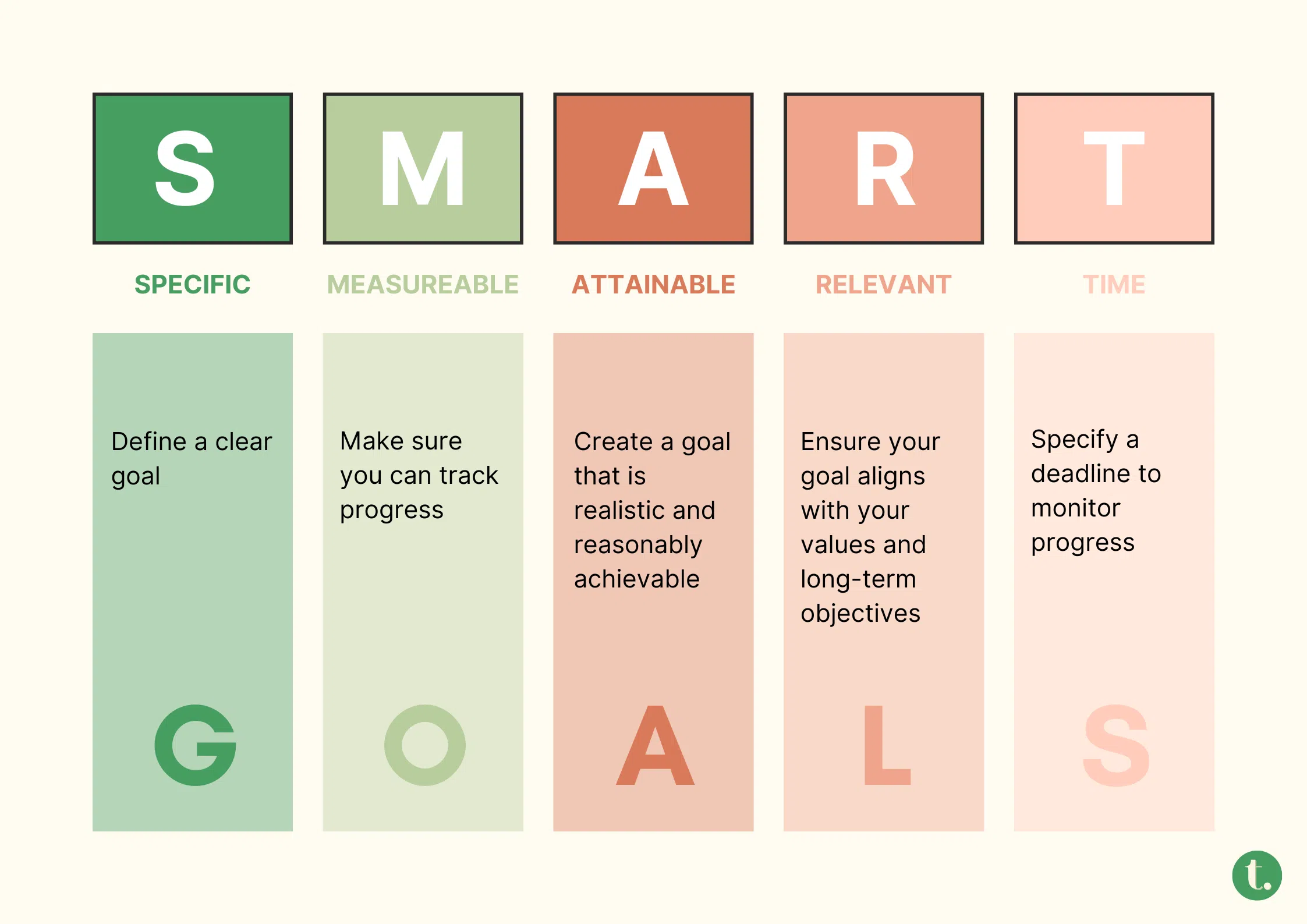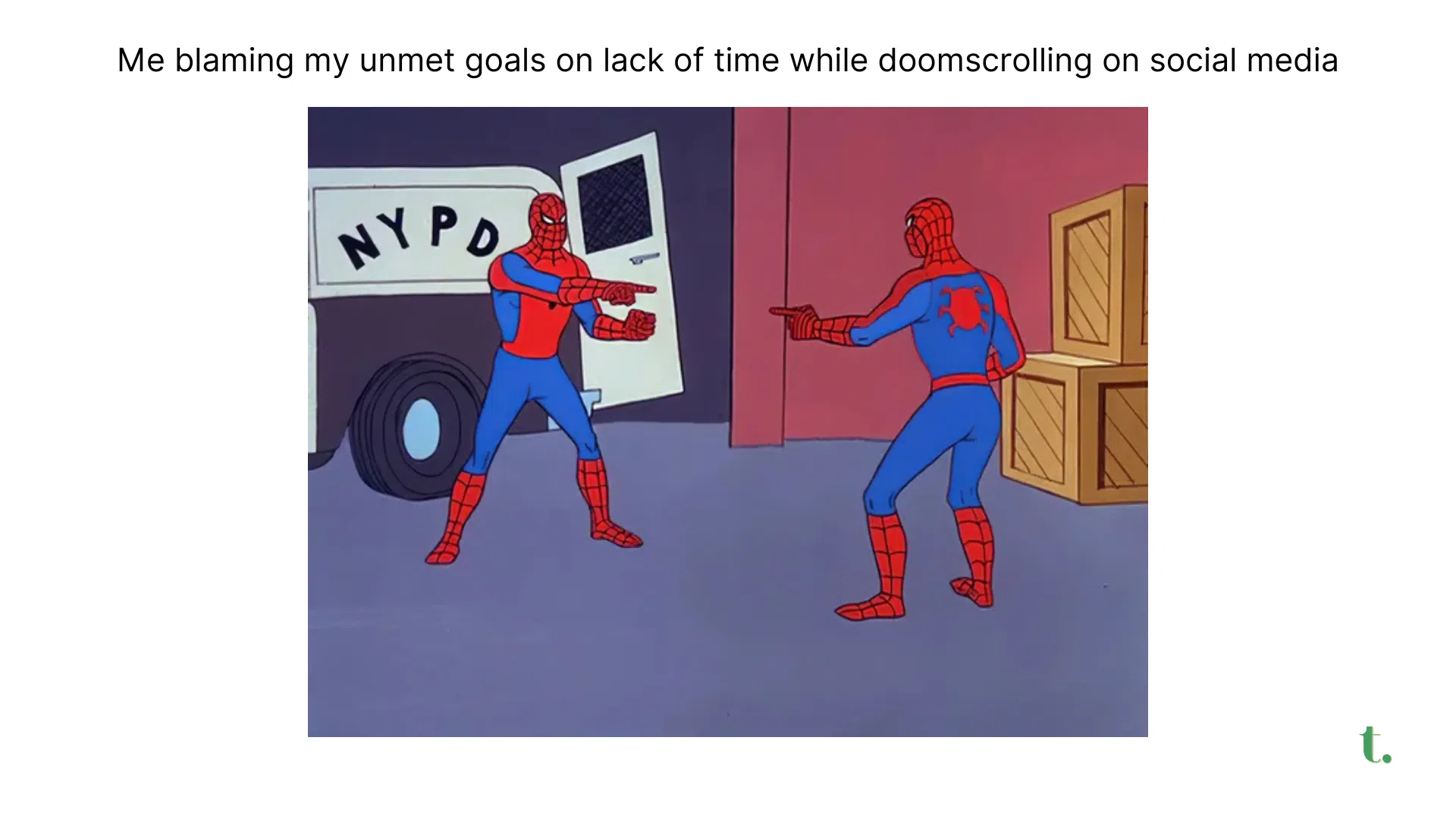New year, same old you?

Straight to your inbox. Money, career and life hacks to help young adults stay ahead.
- Find out more and sign up for thrive at bt.sg/thrive
🤪 Check yourself before you wreck yourself
As the year winds down, many of us take stock of our goals; the ones we crushed, the ones that got away, and the ones we forgot we even set 😮💨.
But how can you objectively evaluate your progress? According to Devendra Bisaria, a counsellor and executive coach with Incontact Counselling And Training, a fair self-assessment involves the following:
- Checking if goals are in line with the SMART framework (Specific, Measurable, Attainable, Relevant, Time)
- Avoiding comparisons with others
- Being aware of your limitations

No two individuals have the same abilities. Bisaria emphasises the value of self-awareness, citing Socrates’ wisdom, “The unexamined life is a life not worth living.” By examining ourselves, we can set realistic goals tailored to our capabilities, creating a more fulfilling journey.
Zubin Jain, 22, recently celebrated a major milestone – publishing the first issue of his speculative fiction magazine 👩🎤. Yet, he admits that goal-setting has never been easy for him. “I’ve always struggled with setting realistic goals,” he shares. “It’s hard to understand the small steps one has to consistently take to achieve bigger things.” To overcome this, Zubin started journalling nightly, a practice that helps him stay grounded.
When setbacks arise, Zubin notes the importance of reflection. “Feeling bad isn’t helpful unless it pushes you to change,” he says. His advice? Refocus, reorient, and learn from the experience.
🤔 Be your best critic without going overboard
Identifying whether you are being too harsh or too lenient with yourself requires a deeper understanding of your motivations. Here are some things to consider:
Navigate Asia in
a new global order
Get the insights delivered to your inbox.
- Unrealistic expectations can lead to frustration or complacency so finding a balance is key ⚖️.
- Relying solely on comparisons can create unnecessary pressure, while focusing only on personal benchmarks may not provide the challenge needed for growth 📏.
- Your goals should align with who you are and not who others expect you to be 😌.
🧘 Making peace with unmet goals

It’s important to reflect on the reasons behind an unmet goal, whether due to a lack of effort or external circumstances beyond your control, to gain clarity and move forward.
Bisaria highlights the transformative power of self-awareness, referencing American psychologist Carl Rogers: “When I can accept myself just as I am, then I can change.” This requires honesty with yourself, a willingness to confront your shortcomings, and a resolve to do better in the future.
One failure doesn’t guarantee future failures; instead, it can pave the way for future success by teaching you what doesn’t work.
Take it from Darroy Xie, 24, who once aspired to be a financial advisor. He took workshops, tackled tough exams, and envisioned his future in the field. But along the way, he realised it wasn’t the right fit.
Instead of viewing this as a setback, Darroy turned it into an opportunity for reflection. “I look towards what I learnt during the process of chasing my goal and realised that while I couldn’t hit it within the time frame I wanted, the experience was valuable enough,” he explains. Now a marketing associate, Darroy uses what he has learnt from the experience in his new role.
To cope with feelings of inadequacy, Bisaria recommends mindfulness exercises such as going out for walks, talking to loved ones, and focusing on self-care 💆♀️.
✅ Your personal report card
Now it’s your turn. Grab a notebook or open your Notes app and create your personal report card. Here’s something to get you started:
Before setting goals
- Have I identified why I want to pursue this goal?
- Is this goal achievable within the time frame I have?
- Have I broken this goal into actionable steps?
- Do I have the resources to accomplish this goal?
During the journey
- Am I tracking my progress regularly?
- Am I staying motivated, and if not, have I revisited the reasons why this goal is important?
If I don’t meet my goal
- Can I identify specific factors that influenced the outcome?
- Have I learnt something valuable from this experience?
After reflecting on the goal
- Do I want to try again with a revised plan or should I let go of this goal for now?
- Have I sought feedback to gain a new perspective?
Just remember that what matters most is the growth you’ve experienced along the way. You got this 💪🏼!
TL;DR
- Use the SMART framework to set realistic goals tailored to your abilities
- Reflect on your motivation, evaluate progress without harsh self-criticism, and accept your limitations to create a more fulfilling journey
- View unmet goals as opportunities for growth by identifying lessons learnt and adjusting your approach
- Regularly monitor your journey through practices such as journalling to refocus and stay motivated
Decoding Asia newsletter: your guide to navigating Asia in a new global order. Sign up here to get Decoding Asia newsletter. Delivered to your inbox. Free.
Copyright SPH Media. All rights reserved.
